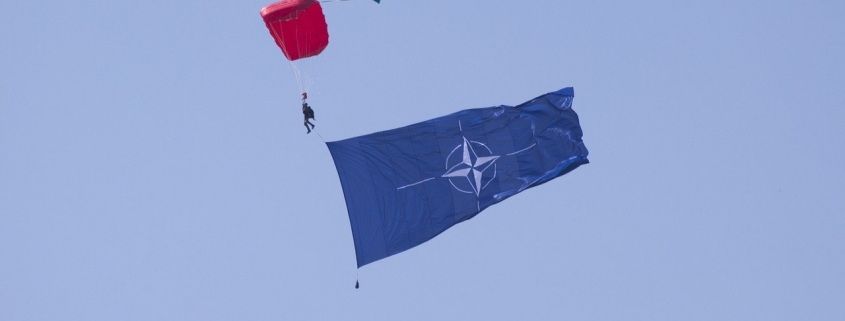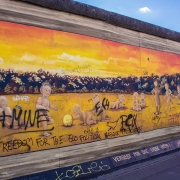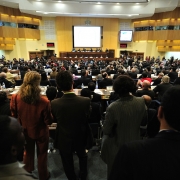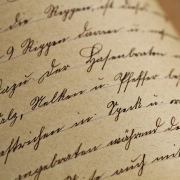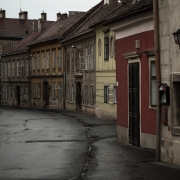Why was NATO formed?
Topic of Study [For H2 and H1 History Students]:
Paper 1: Understanding the Cold War (1945-1991)
Section A: Source-based Case Study
Theme I Chapter 1: Emergence of Bipolarity after the Second World War II
Aftermath: The Crisis of 1948
From 21 to 25 February 1948, a coup d’état in Czechoslovakia had signaled the fall of the last pro-Democratic government in Eastern Europe. In the eyes of the United States, it was a profound and alarming development largely orchestrated by the Soviet Union. Four months later, the Berlin Blockade began, escalating tensions between the two Big Powers.
Although the Western Powers were successful in mobilising their air forces to deliver essential aid to the Berliners, the conclusion of the blockade on 12 May 1949 meant the division of Germany. In order to protect its allies from any potential security threat posed by the Soviet Union, the United States supported the creation of the North Atlantic Treaty Organisation (NATO).
Article V: Collective Security
On 4 April 1949, the USA and eleven other countries (Belgium, Canada, Denmark, France, Iceland, Italy, Luxembourg, the Netherlands, Norway, Portugal and the United Kingdom) signed the North Atlantic Treaty. Between 1952 and 1989, four countries admitted NATO, namely Greece and Turkey, West Germany and Spain.
The purpose of NATO was to “unite their efforts for collective defence and for the preservation of peace and security”. In particular, Article 5 outlines the concept of collective security, in the member countries are obligated to defend any member(s) is/are threatened by acts of aggression.
The Parties agree that an armed attack against one or more of them in Europe or North America shall be considered an attack against them all and consequently they agree that, if such an armed attack occurs, each of them, in exercise of the right of individual or collective self-defence recognised by Article 51 of the Charter of the United Nations, will assist the Party or Parties so attacked by taking forthwith, individually and in concert with the other Parties, such action as it deems necessary, including the use of armed force, to restore and maintain the security of the North Atlantic area.
Any such armed attack and all measures taken as a result thereof shall immediately be reported to the Security Council. Such measures shall be terminated when the Security Council has taken the measures necessary to restore and maintain international peace and security .
An excerpt from Article 5 of “The North Atlantic Treaty“, 4 April 1949.
From a broader perspective, NATO was founded to fulfil three key aims:
- Prevent Soviet expansionism
- Prohibit the revival of national militarism in Europe
- Promote European political integration
However, Soviet distrust towards the US-led NATO had festered even before its inception. Explicit references made to the United Nations Charter were interpreted by the Soviets as convenient attempts to conceal the ‘true’ Western intentions to use military aggression to consolidate their power and influence.
The Soviet press made a point of printing the full text of the treaty on 29 March to expose the hollowness of its claim of its harmony with the charter. And on 31 March, just five days before the official signing, the Soviets issued a formal protest, asserting that Article 5 would unleash aggressive armies “without any authority whatsoever of the Security Council.” Nor could the treaty be justified under Article 51, which was designed to be used only in the case of an armed attack upon a UN member, not as a cover for aggressive aims.
An excerpt from “NATO 1948: The Birth of the Transatlantic Alliance” by Lawrence S. Kaplan.
What can we learn from this article?
Consider the following question:
– Assess the significance of NATO in shaping the outbreak of the Cold War in 1949.
Join our JC History Tuition to grasp the key concepts and historical developments in the Cold War. The H2 and H1 History Tuition feature online discussion and writing practices to enhance your knowledge application skills. Get useful study notes and clarify your doubts on the subject with the tutor. You can also follow our Telegram Channel to get useful updates.
We have other JC tuition classes, such as JC Math Tuition and JC Chemistry Tuition. For Secondary Tuition, we provide Secondary English Tuition, Secondary Math tuition, Secondary Chemistry Tuition, Social Studies Tuition, Geography, History Tuition and Secondary Economics Tuition. For Primary Tuition, we have Primary English, Math and Science Tuition. Call 9658 5789 to find out more.

